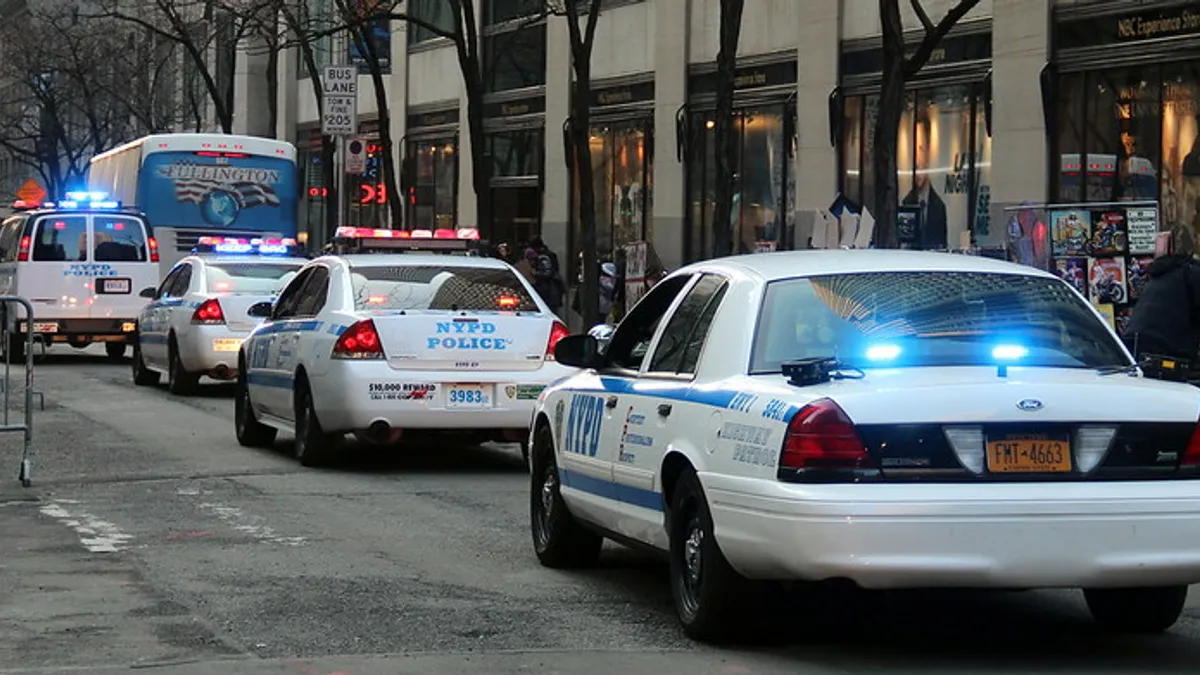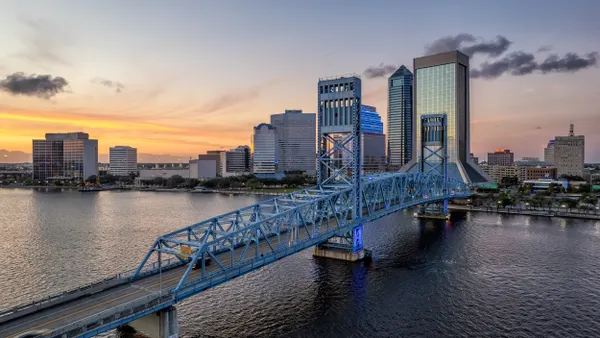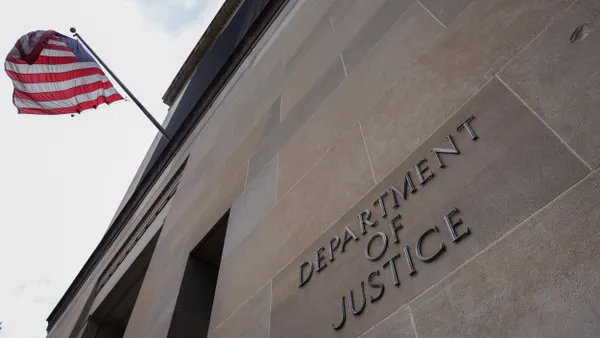Dive Brief:
- New York City Mayor Bill de Blasio recently announced that mental and physical health professionals will be the "default response" to 911 mental health-related emergency calls for the first time in city history, starting in two undisclosed high-need neighborhoods.
- The pilot, which begins in February, will respond to qualifying emergency scenarios with "mental health teams" to help deescalate conflict and reduce the number of police officers needed to address mental health-related calls, according to the official announcement.
- The pilot program will ultimately influence how the city responds to mental health emergencies across other neighborhoods. It is in part modeled off the CAHOOTS (Crisis Assistance Helping Out on the Streets) program in Eugene, OR that integrates police-response alternatives to 911 calls for non-violent situations.
Dive Insight:
New York’s pilot is the city’s latest move to address demands for police reform following the police killing of George Floyd and subsequent demonstrations against systemic racism this year. The pilot's announcement comes in the wake of the police killing of Walter Wallace Jr. in Philadelphia, a Black man who was shot and killed while having a mental health crisis.
The pilot also follows a trend that's picking up nationally, with similar programs being pursued in Albuquerque, NM, Denver, Los Angeles, San Francisco and more, according to the Office of the Mayor.
Currently in New York, first responders — including the police — are called to almost all mental health-related 911 calls, "regardless of the severity of health needs, whether a crime is involved, or whether there is an imminent risk of violence," the official announcement reads. This will change with the pilot, as over 65% of operational staff in the NYPD patrol precincts have now been trained in crisis intervention. For emergency calls during the pilot that involve a weapon or similar harm-related risks, the mental health teams will respond with police officers.
"Mental illness is not a crime, but we call upon the police as first responders in a mental health crisis," said Linda Rosenberg with the Columbia University Department of Psychiatry, in a statement. "Now, New York City is changing the outdated and dangerous use of police that too often has led to injury and even death."
The pilot builds on years of work to improve mental health crisis prevention, according to the announcement. The number of mental health 911 calls declined by more than 8,000 last year for the first time in a decade, which local officials attribute to a "concerted effort to strengthen how the city prevents and responds to mental health crisis."
Still, around 20% of New Yorkers struggle with a mental health condition, Mayor de Blasio said in a statement. "Now more than ever, we must do everything we can to reach those people before crisis strikes."
While the pilot is a strong effort, it is not enough, said Ruth Lowenkron, director of the Disability Justice Program at New York Lawyers for the Public Interest. She expressed concern that the pilot does not include peers, or people with lived mental health experiences, as responders to those 911 calls.
There is also a reluctance among the community to call 911 in the first place, she said. It is problematic that the pilot is not run by community groups, and instead uses NYPD 911 dispatchers to connect residents with the help they need, according to Lowenkron. Ultimately, it’s the police calling the shots about where the calls go, she said.












